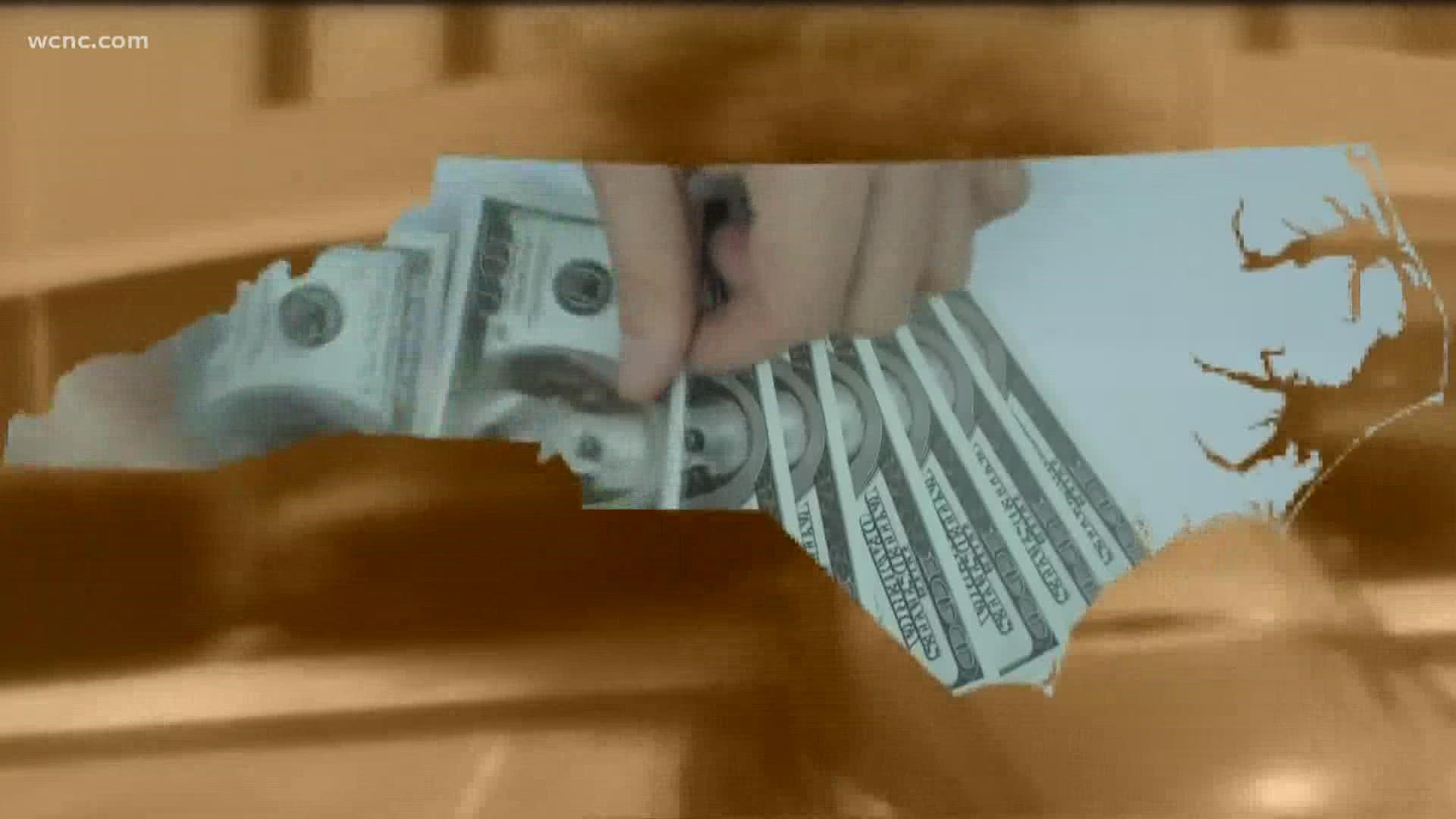CHARLOTTE, N.C. — North Carolina ranks eighth in the nation in the percentage of renters who are behind on payments that mean an eviction is likely. In fact, LendingTree's survey found 60.7% of renters who say they’re behind on bills believe they're likely to face eviction in the coming months.
In late August 2021, the Supreme Court struck down the CDC’s eviction moratorium, putting millions of renters at risk of eviction despite COVID-19 cases inundating hospitals again, expanded unemployment benefits ending and the national unemployment rate sitting higher than its pre-pandemic levels.
“Even if you can’t get a rent reduction, your landlord may still allow you to end your lease early and move out without being officially evicted,” said Jacob Channel, a senior economic analyst with MagnifyMoney. “If you end up needing to look for a new place to live, avoiding an eviction will make your life easier down the road."
Experts say it is best to try to work with your landlord and pay something rather than nothing.
15.4% of renters in the U.S. report being behind on rent payments. Of those delinquent on rent, 45.1% say they’re somewhat or very likely to be evicted in the next two months, according to this article from LendingTree.
Depending on the state, landlords can begin the early stages of eviction as soon as a tenant misses a payment, but the longer rent goes unpaid, the more likely a tenant will risk eviction. It is important to note the term “eviction” refers to the legal proceedings that may lead to a tenant’s removal. Tenants can fight an eviction in court or remedy the situation before it goes to court. Eviction processes vary by state and can generally take from a few weeks to several months.
Contact Bill McGinty at bmcginty@wcnc.com and follow him on Facebook.
WCNC Charlotte is always asking "where's the money?" If you need help, reach out to the Defenders team by emailing money@wcnc.com.

